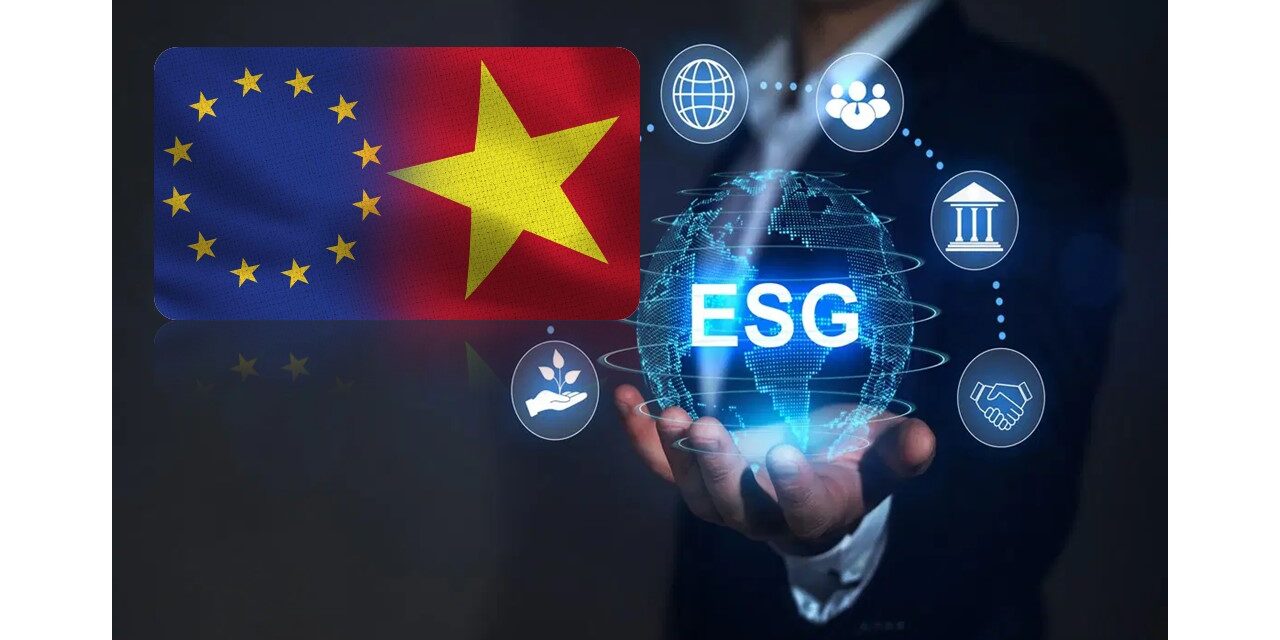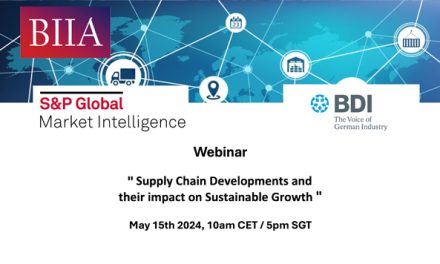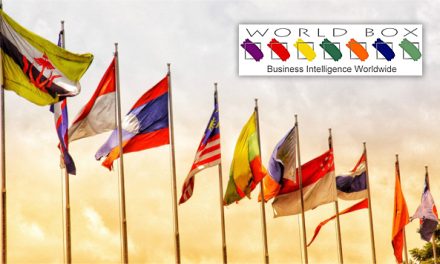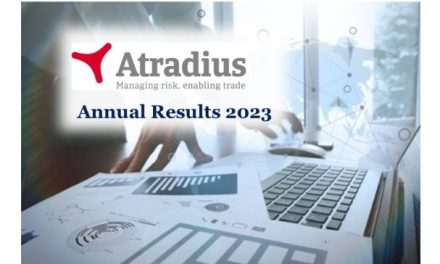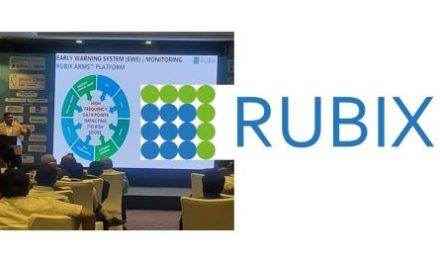New rules in the EU will ensure that businesses act responsibly with respect to workers and the environment inside, as well as outside, of the EU. With a large number of EU companies in Vietnam, here’s what local and foreign firms need to be aware of.
In February of this year, the EU Commission issued a directive on corporate sustainability and due diligence. The directive requires EU member states to create laws that monitor environmental, social, and governance (ESG) issues in their global supply chains.
In the case of Vietnam, EU investors have registered more than US$26 billion for nearly 2,250 projects since the Europe-Vietnam Free Trade Agreement (EVFTA) came into force. The Lego Group from Denmark, for example, was licensed to invest more than US$1 billion to build a carbon-neutral factory on 44 hectares of land in Binh Duong just last year.
This reflects the rapidly growing presence of EU companies in Vietnam as the two economies become more greatly intertwined – an outcome of geopolitical de-risking and expansion of Asian bases of operation.
It is in this context that understanding how the proposed diligence laws could impact Vietnam becomes important – both EU firms doing business with Vietnam as well as domestic manufacturers involved in EU supply chains. For example, Germany’s Adidas has 51 contract suppliers in Vietnam employing over 190,000 staff.
The objective for the corporate sustainability and due diligence laws is ensuring better protection of worker rights and the environment in Vietnam. This is hoped to facilitate the adoption of best international practices and open better access to remedies for victims of harmful corporate practices.
The eventual outcomes, however, will depend on how the EU countries frame relevant laws and what are their standards of compliance.
In the meantime, based on the information currently available, here’s what foreign and domestic firms need to know.
What are the obligations of companies and their directors?
The obligations of companies and their directors are to identify, mitigate against, and thereby prevent negative human rights and environmental impacts. This not only extends to the company’s own operations, but also its subsidiaries and supply chains, wherever they may be.
This is in line with a broader move to ensure ESG plays a more significant role in corporate operations – it’s based on the UN’s Guiding Principles on Business and Human Rights and the OECD Guidelines for Multinational Enterprise. Furthermore, it also aligns with the Paris Agreement and internationally recognized human rights and labor standards.
To meet the requirements of Brussel’s directive, companies are required to:
- Integrate due diligence into their policies;
- Identify actual or potential adverse human rights and environmental impacts in their operations;
- Prevent or mitigate potential impacts of any problems identified;.
- Bring to an end or minimize actual impact;
- Establish and maintain a complaints procedure;
- Monitor the effectiveness of their due diligence policies; and,
- Publicly communicate the results of their due diligence programs.
Which companies in Vietnam will the new proposed EU rules apply to?
Under the scope of this proposal, EU companies in Vietnam which fall into one of these two groups shall be subject to the law:
Group 1
Large, economically powerful and highly profitable European limited liability companies. These are defined as companies earning more than EU€150 million (US$160 million) in net turnover and with more than 500 employees worldwide.
Group 2
Two years after this directive takes effect, the new rules will also be extended to limited liability companies operating in predefined high-impact sectors. These are companies that show EU€40 million (US$42 million) in net turnover and have more than 250 employees worldwide.
Some EU companies in Vietnam that may be impacted by the directive
Bosch Vietnam
Bosch is a German appliance manufacturer that established its first representative office in Vietnam, in Ho Chi Minh City, in 2007.
Since then, the company has expanded its operations to two other branch offices in Hanoi and Da Nang.
In addition, Bosch operates R&D centers for technology and enterprise solutions and R&D centers for automotive technology in both Ho Chi Minh City and Hanoi.
In the 2021 fiscal year, Bosch recorded a consolidated revenue of approximately EU€192 million (US$204 million) in Vietnam. It also employed more than 5,000 associates through its diversified business operations in Vietnam.
Mercedes-Benz Vietnam Co., Ltd.
Mercedes-Benz Vietnam Co., Ltd. is a subsidiary of the well-known German luxury automobile manufacturer. The company arrived in Vietnam in 1995.
In addition to manufacturing and distributing vehicles, Mercedes-Benz Vietnam is also committed to promoting sustainable development and environmental protection in Vietnam. The company has implemented several initiatives to reduce its environmental impact. For instance, reducing greenhouse gas emissions, conserving energy and water resources, and minimizing waste generation.
In 2022, Mercedes-Benz had revenue of EU€150 billion (US$160 million) worldwide with 172,000 employees.
Enforcement mechanisms
The EU directive on corporate sustainability and due diligence has two key provisions for enforcement. These are:
- Administrative supervision
EU members need to designate an institution to supervise and impose sanctions, including fines and compliance orders, that are effective, proportionate, and dissuasive. Furthermore, a European Network of Supervisory Authorities will be established to bring together representatives of the national bodies. - Civil liability
Victims of non-compliance will receive compensation for damages. In addition, they will have the opportunity to take legal action for damages that could have been avoided with appropriate due diligence measures.
Vietnam’s commitment to corporate sustainability
But EU laws are not the only ESG protections in place for supply chains in Vietnam. The burgeoning Southeast Asian nation also has several key laws, regulations, and arrangements in place to fulfill its own ESG goals.
Laws in Vietnam related to due diligence and corporate sustainability
Vietnam’s Law on Enterprises 2020, which forms the backbone of the country’s business law, does not mention the term ‘corporate sustainability’. Neither does it have any article that governs ‘corporate due diligence’. However, the law does contain provisions that encourage the corporate sustainability of enterprises operating in Vietnam.
For example, it specifically mentions that companies should protect the legitimate rights of employees and prevent discrimination and harassment.
It also encourages enterprises to develop and implement their own corporate sustainability policies and activities that include environmental protection, social welfare programs, and philanthropic activities.
Furthermore, the Vietnamese government has implemented various other laws and regulations related to environmental protection and labor rights. These include:
- Law on Environmental Protection (2020)
- Law on Labor (2019)
Institutional ESG framework in Vietnam
On June 4, 2019, the Prime Minister issued Decision No. 681/QD-TTg approving the Roadmap for the implementation of Vietnam’s sustainable development goals to 2030. In particular, the Roadmap sets out 119 targets to monitor the progress made toward achieving the UN’s Sustainable Development Goals. These goals include environmental and human rights targets, along with labor rights.
More recently, the One Strategic Framework for Sustainable Development Cooperation was signed in August 2022. This outlines how the United Nations and the Government of Vietnam will collaborate on Vietnam’s sustainable development. The agreement covers social development, climate change, disaster preparedness, and environmental sustainability.
Vietnam has also established a Corporate Sustainability Index, which ranks businesses based on several key sustainability criteria. In 2022, 130 indicators were used to determine participant sustainability. These were developed in accordance with the Labor Law, Environmental Law, Vietnam’s commitments at COP21 and COP26, the Global Reporting Initiative, and ISO 26000 standards, as well as a wide range of ESG requirements embedded in Vietnam’s numerous free trade agreements.
Current due diligence laws in the EU
Germany’s Supply Chain Due Diligence Law (LkSG)
Germany’s Supply Chain Due Diligence Act (the LkSG) came into force in January 2023. This law makes it mandatory for larger businesses to conduct supply chain risk analyses to closely examine risks and violations.
This law applies to:
- Businesses with 3000 or more employees from 2023; and
- Businesses with 1000 or more employees from 2024.
These firms must:
- Develop a risk management system;
- Appoint a person to be responsible within the company;
- Conduct regular risk analyses and preventive measurements in its own operations, subsidiaries, direct suppliers, and indirect suppliers;
- Create a complaints mechanism and take corrective action where necessary; and
- Create progress reports and submit them to the appropriate authorities annually and publish them on its website.
France’s Corporate Duty of Vigilance Law (Loi de Vigilance)
In 2017, France passed legislation requiring large corporations to conduct human rights and environmental due diligence and to publish an annual Vigilance Plan. The law was enacted to ensure that large French corporations take steps to identify and prevent human rights and environmental abuses.
This law applies to:
- French companies that employ more than 10,000 employees worldwide; and
- Foreign companies operating in France with more than 10,000 employees worldwide.
These firms must:
- Establish and effectively implement a vigilance plan that includes:
- risk mapping: identification, analysis, and ranking of potential risks;
- steps implemented to address, mitigate, and prevent risks and violations;
- outline of procedures implemented for periodically assessing the company’s subsidiaries, subcontractors, and suppliers’ compliance;
- a method for identifying existing or potential risks in collaboration with relevant trade unions; and
- a method for identifying existing or potential risks;
- Establish a monitoring scheme to follow up on the measures implemented and assess their efficiency; and
- Publish their Vigilance Plan annually.
EU organizations and due diligence in Vietnam moving forward
The EU’s directive on corporate sustainability and due diligence is a significant development in the global effort to promote sustainable development.
This directive is, however, only a guide and the full impact will depend on what laws are enacted in the EU among its member states and how they are implemented in external supply chains.
Regardless, as a major trading partner with the EU, Vietnam’s own efforts to regulate corporate sustainability and social responsibility are likely to receive a welcome boost. Its workers and environment should also see greater protection creating more sustainable supply chains.
Source: VietnamBriefing
